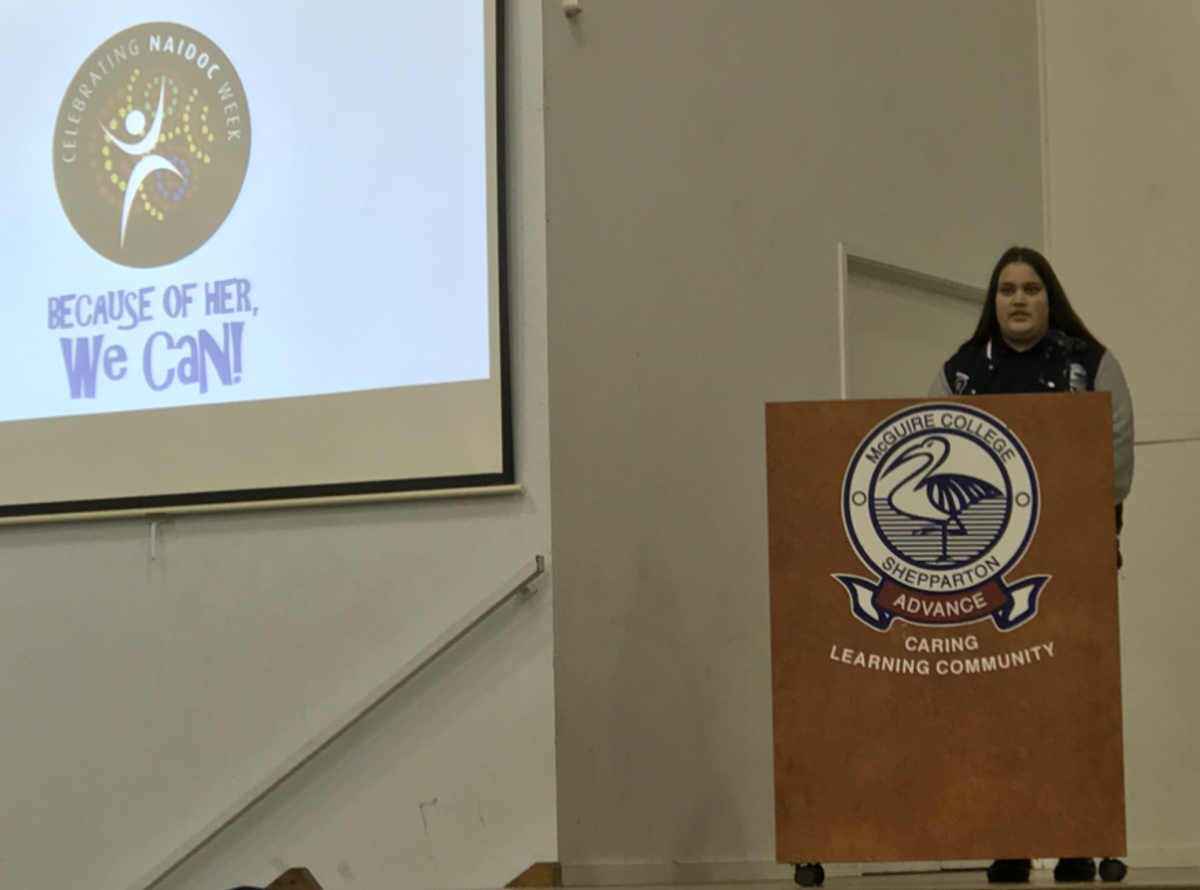Principals Report

Dear Parents and Friends,
Last Wednesday our College community celebrated NAIDOC Week, under the theme - Because of Her, We Can!, staff and students came together for a whole-school assembly, staff also took part in a professional learning session tracing the history of our first nation people.
As pillars of our society, Aboriginal and Torres Strait Islander women have played – and continue to play - active and significant roles at community, local, state and national levels.
As leaders, trailblazers, politicians, activists and social change advocates, Aboriginal and Torres Strait Islander women fought and continue to fight, for justice, equal rights, rights to country, for law and justice, access to education, employment – they have fought to maintain and celebrate culture, language, music and art. They continue to influence and support communities across our land as doctors, lawyers, teachers, electricians, chefs, nurses, architects, rangers, emergency and defence personnel, writers, volunteers, chief executive officers, actors, singer songwriters, journalists, entrepreneurs, media personalities, board members, accountants, academics, sporting icons and Olympians, the list goes on.
They are mothers, elders, grandmothers, aunties, our sisters and daughters. Sadly, Indigenous women’s role within our cultural, social and political survival has often been invisible, unsung or diminished.
For at least 65,000 years, Aboriginal and Torres Strait Islander women have carried and shared dreaming stories, song lines, languages and knowledge that have supported generations to share culture and to enrich all of us.
Aboriginal and Torres Strait Islander women were there at first contact.
They were there at the Torres Strait Pearlers strike in 1936, the Day of Mourning in 1938, the 1939 Cummeragunja Walk-Off, at the 1946 Pilbara pastoral workers' strike, the 1965 Freedom Rides, they were at the Wave Hill walk off in 1966, they were on the front line of the Aboriginal Tent Embassy in 1972 and at the drafting of the Uluru Statement. They have marched, protested and spoken at demonstrations and national gatherings for the recognition of rights and have called for national reform and justice.
Aboriginal and Torres Strait Islander women were heavily involved in the campaign for the 1967 Referendum and also put up their hands to represent their people at the establishment of national advocacy. These women often did so while caring for families, maintaining homes and breaking down cultural and institutionalised barriers and gender stereotypes. Aboriginal and Torres Strait Islander women did this because they demanded a better life, greater opportunities and - in many cases equal rights - for children, for families and for all people.
The achievements, of the Aboriginal and Torres Strait Islander women - their strong voice, their unwavering passion have given strength to and have empowered past generations and continued to pave the way for generations to come.
Our school assembly was a great opportunity for staff and students to come together to celebrate to reflect, to learn.
Have a great week.
Kind regards, Claire Kelly


